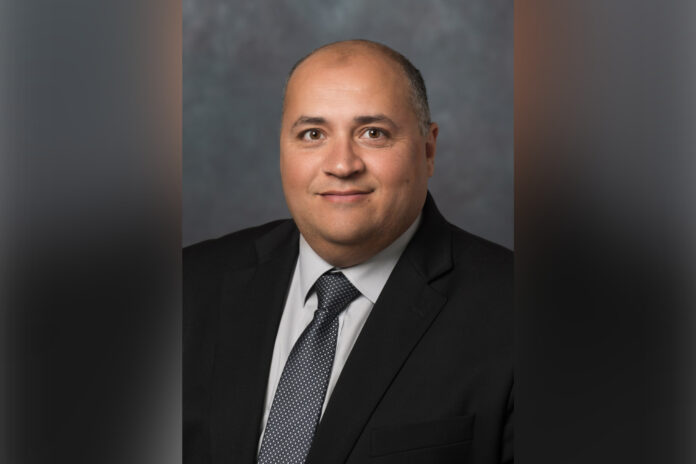SAVANNAH — Mercer University School of Medicine (MUSM) Professor Mohammed Abdelsaid, RPh, Ph.D., received an American Heart Association Institutional Research Enhancement Award (AIREA) to study how COVID-19 affects brain functions, focusing on cognitive impairments. The funding is for $154,000 over two years and will support Dr. Abdelsaid and his team as they work to research possible treatments to prevent COVID-19 induced brain damage.
While COVID-19 mortality has dropped significantly, ongoing complications of long-term COVID-19 continue to rise. One of these devastating complications is brain fog and a decline in learning and memory functions. Dr. Abdelsaid’s studies will investigate how COVID-19 causes damage in brain blood vessels that lead to brain fog and impaired cognitive functions.
“The main outcome is to understand how COVID-19 causes brain fog and a reduction in our cognitive abilities,” said Dr. Abdelsaid, assistant professor of pharmacology at MUSM. “We’ll also look at repurposing a blood pressure medication to prevent brain blood vessel damage and restore our cognitive abilities after COVID-19 infection.”
Georgia is among the states that have been most harmed by COVID-19. Georgia suffered high COVID-19 mortality, especially in rural areas. According to the Centers for Disease Control and Prevention, many rural Georgians continue to suffer from what is known as “long COVID” or post-COVID conditions, which are conditions that continue or develop after an initial COVID-19 infection. These conditions can include a wide range of ongoing health problems, lasting weeks, months or years. Dr. Abdelsaid’s studies will focus on how and why these post-COVID conditions happen and further investigate possible treatment for them.
“Lack of primary care access in underserved rural areas made access to treatment for COVID-19 more difficult. Often patients had severe disease before reaching care.” said Jean Sumner, M.D., FACP, dean of MUSM. “Dr. Abdelsaid is an outstanding researcher and faculty member. We are delighted that his research is relevant to so many patients and especially those in rural Georgia.”
The American Heart Association is the largest nonprofit, nongovernmental funder of cardiovascular and cerebrovascular research in the United States. AIREA supports small-scale research projects related to cardiovascular diseases and brain health at educational institutions, with the goal of exposing students to research.
“Receiving the AIREA is an honor for my research team and me. It is recognition for our hard work, an appreciation for our excellence in preclinical research innovation, and a word of trust in our high-significance research outcomes,” Dr. Abdelsaid said. “Our students will learn how high-quality research is carried out and be inspired with new ideas and critical thinking skills, in addition to serving Georgians who are suffering from COVID-19 complications.”
About Mercer University School of Medicine (Macon, Savannah and Columbus)
Mercer University’s School of Medicine was established in 1982 to educate physicians and health professionals to meet the primary care and health care needs of rural and medically underserved areas of Georgia. Today, more than 60 percent of graduates currently practice in the state of Georgia, and of those, more than 80 percent are practicing in rural or medically underserved areas of Georgia. Mercer medical students benefit from a problem-based medical education program that provides early patient care experiences. Such an academic environment fosters the early development of clinical problem-solving and instills in each student an awareness of the place of the basic medical sciences in medical practice. The School opened additional four-year M.D. campuses in Savannah in 2008 and in Columbus in 2021. Following their second year, students participate in core clinical clerkships at the School’s primary teaching hospitals: Atrium Health Navicent The Medical Center and Piedmont Macon Medical Center in Macon; Memorial Health University Medical Center in Savannah; and Piedmont Columbus Regional Hospital and St. Francis-Emory Healthcare in Columbus. The School also offers master’s degrees in preclinical sciences and biomedical sciences and a Ph.D. in rural health sciences in Macon and a master’s degree in family therapy in Macon and Atlanta.










